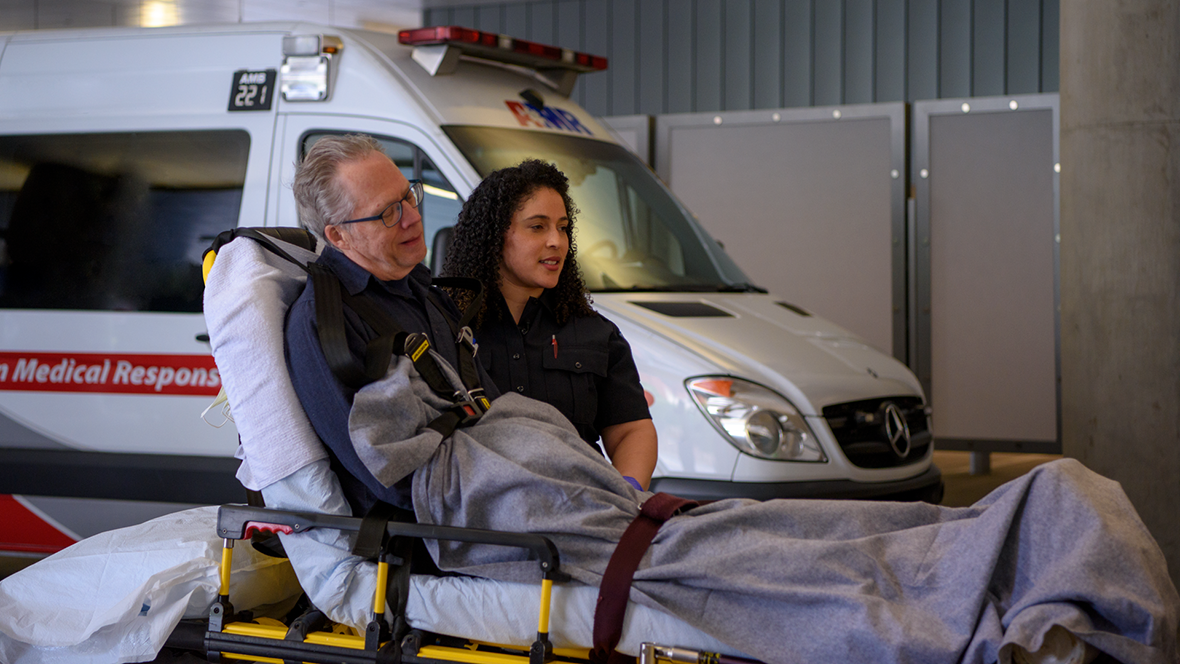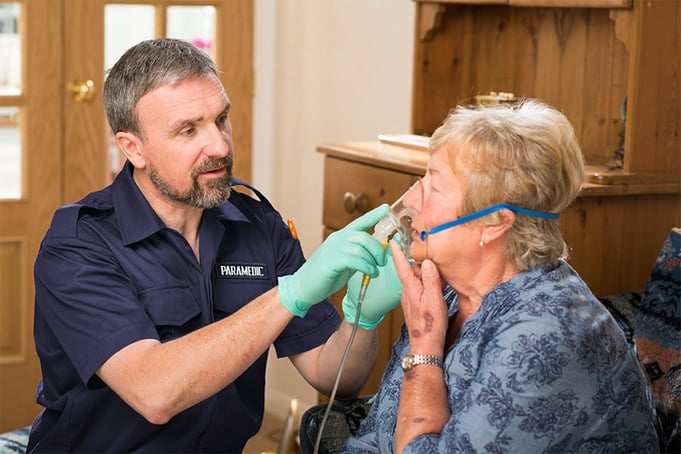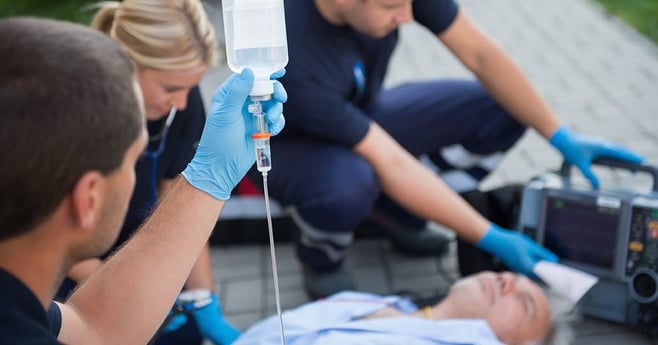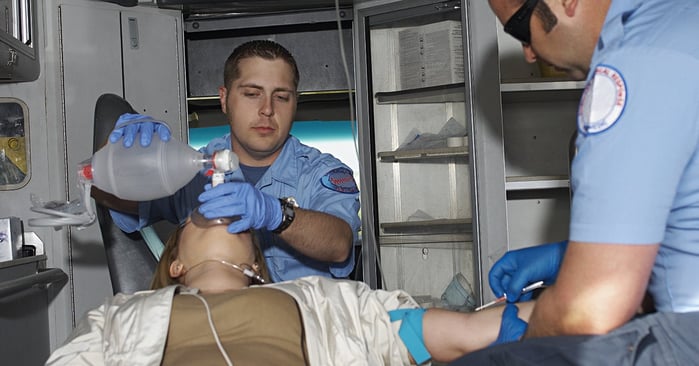In the News: Pulsara's Impact From Preparedness to Lifesaving Care
At Pulsara, it's our privilege to help serve the people who serve people, and we're always excited to see what they're up to. From large-scale...

Imagine:
You arrive on the scene of a single-vehicle MVA with two passengers. The driver is a male in his 80s, and you can see that he requires immediate transport. However, he doesn't seem concerned about himself; instead, he keeps asking about his passenger—his wife, who has died.
What do you tell him?
Ethics is a major consideration in other allied health professions, but the topic rarely receives much attention in EMS. And when it does, most tend to assume that the same ethical considerations that apply to physicians carry over into EMS. That's not always the case. While many of the same principles do apply, their application might look different for medics. Medics often face unique situations where time is short, options are limited, and consent unavailable. And now, in the midst of a pandemic, medics face many situations where tough decisions must be made with limited resources in short order.
A more full discussion of the differences in ethics for EMS may be found here, but there are ten ethical concepts medics need to be familiar with in order to make the best possible decisions while they're in the field.
Here are the top 10 things you need to know about ethics in EMS.
Also known as self-determination, autonomy refers to the right of the patient to make decisions about their own medical care. [1] In EMS, we often encounter this ethical concept when well-meaning family members attempt to supersede the wishes of a patient who is otherwise competent and capable of making their own choices. Aside from situations where an inability to make appropriate decisions has been demonstrated (e.g., threat of suicide), a patient who is alert, oriented, and able to comprehend the gravity of their situation has the right to determine the course of their own medical care.
A patient exercising autonomy can only make appropriate decisions regarding their medical care if they possess enough information to make informed choices. [2] It is therefore the ethical obligation of EMS providers to present a full and accurate picture to our patients of the risks and benefits of their self-determined health care decisions.

Information received while engaged in a patient-provider relationship must remain guarded from those without a need-to-know. Consequences for the inappropriate or negligent disclosure of private medical information include embarrassment to the patient; the erosion of trust between EMS providers and the public we serve; and hefty fines to the agency. Violations of the Health Insurance Portability & Accountability Act (HIPAA) can result in fines as high as $50,000 per infraction, with a maximum penalty of $1.5 million per year. [3]
The term beneficence describes actions which are carried out for the benefit of others. Administering D50 to a hypoglycemic patient while on-scene, instead of immediately transporting them to the hospital while unconscious, is an example of beneficence in EMS. In this situation, providing IV dextrose with the knowledge that the patient could very likely return to consciousness and be left safely in their home is beneficial in terms of lower cost to the patient, and less of their time wasted waiting for an unnecessary ER evaluation.
Primum non nocere — first, do no harm — is the original guiding principle of medicine. If faced with a choice between doing nothing or taking an action which will cause more harm, the correct decision in most cases is to take no action. Similarly, if inaction would likely result in harm befalling a patient, EMS providers are obligated to take appropriate steps for the protection of those in our care.

As it pertains to healthcare, justice refers to the level of fairness by which medical services are distributed. In EMS, medical care is provided on an emergency basis equally to all persons in need regardless of race, sex, religion, or socioeconomic status. Systems of triage also observe the ethical principle of justice when determining each patient’s priority for care depending on the urgency of their needs.
To simply tend to an emergency medical need is not enough; patients must be afforded basic human dignity and respect. In our often dark and gloomy profession, it is easy to fall into the trap of viewing our patients as cargo to be transported. This is a natural psychological self-defense reaction which EMS providers must guard against in order to maintain ethical health care practices.
EMS providers must be truthful in all dealings. Lying can at best destroy any trust built between EMS and the public, and at worst result in legal ramifications to the provider and the agency. Honesty must be exercised in our documentation, and in our direct communication with our patients and other health care providers.

An EMT or paramedic with integrity adheres to ethical principles despite any pressures or temptations to do otherwise. The provider must be always stalwart in the face of challenges to their ethics, and make only decisions which they know to be good and true.
One of the best ways we can care for our patients is to be their advocate. Advocating for a patient may simply entail making phone calls to coordinate assistance for them, or contacting their primary care physician to help clarify any confusion the patient may have about their doctor’s instructions. In some situations, the patient may be unable to advocate for themselves at all, such as in cases of child or elder abuse, and it becomes the legal and ethical responsibility of the EMS provider to advocate for the patient’s safety and well being.
1. "Autonomy or self-determination as a medical student." Web. 1 May 2020. Retrieved from: https://www.bma.org.uk/advice/employment/ethics/medical-students-ethics-toolkit/2-autonomy-or-self-determination>
2.“Opinion 8.08 - Informed Consent.” American Medical Association Journal of Ethics. Web. 16 March 2021. Retrieved from: https://journalofethics.ama-assn.org/article/ama-code-medical-ethics-opinions-informing-patients/2012-07
3. Brown, Morgan. What is the penalty for a HIPAA violation?” True Vault, 9 Jan. 2014. Web. 16 March 2021. Retrieved from: https://www.truevault.com/blog/what-is-the-penalty-for-a-hipaa-violation.html
EDITOR'S NOTE: This article was originally published on EMS1 in January 2017, written by special guest blogger Drew Rinella as content sponsored by Pulsara through EMS1 BrandFocus. It has been revised, updated, and expanded for current accuracy and comprehensiveness.
As a first responder, it's important to take care of yourself. Here are 10 Things You Need to Know About PTSD and Chronic Stress in EMS.

At Pulsara, it's our privilege to help serve the people who serve people, and we're always excited to see what they're up to. From large-scale...

December Recap After an incredibly busy events year with 102 conferences, trade shows, and sponsorships, December was on the slower side for us, with...

Editor's Note: In July 2025, EMS1 and Fitch & Associates released their annual EMS trend survey, What Paramedics Want, proudly sponsored by Pulsara....